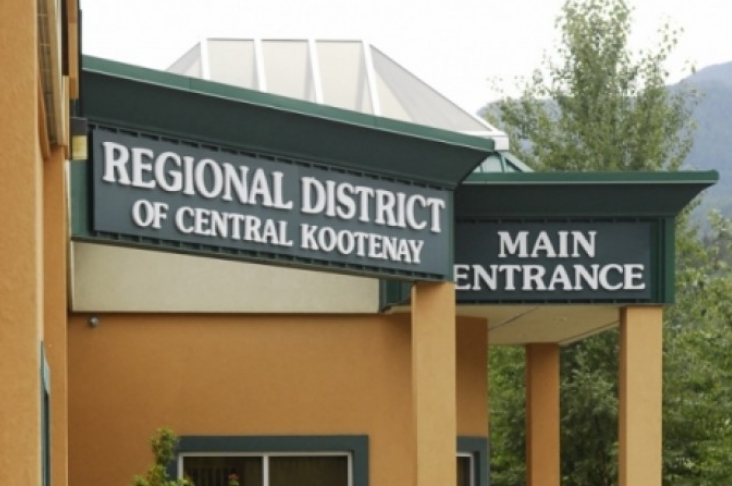More acclaimed candidates than not as RDCK prepares for Oct. 15
Over half of the electoral area directors in the Regional District of Central Kootenay will be placed on the board without an election.
Six of the 11 electoral areas in the RDCK will not have a vote on Oct. 15 when B.C. municipalities, regional districts and school districts hold their collective elections, the 2022 chief election officer Tom Dool noted in an email Tuesday morning.
Under section 97 of the Local Government Act, six people have been declared as the only candidates in their respective electoral area in the 2022 General Local Election, and are running uncontested.
They include incumbents Garry Jackman (Area A), Aimee Watson (Area D), Tom Newell (Area F), Walter Popoff (Area H) and Andy Davidoff (Area I). The only uncontested candidate who was not on the board previously was Teresa Weatherhead in Area K, where she will be replacing long-serving director Paul Peterson.
Peterson had been the Area K director for 20 years (six terms) and was also a New Denver councillor and RDCK director. Weatherheard was his alternate for the last term.
Watson was first elected to the board in 2014 and has served as the chair of the RDCK board for the last term. Davidoff was first elected in Area I in 2011 and returns to fill that role, while Popoff was elected in Area H one term before that in 2008.
Newell (Area F) has served on the board since 2014 with Jackman (Area A) in the same time frame.
Area C director Adam Casemore will face a competitor for the directorship in Kelly Vandenberghe, who has chosen to challenge. The same can be said for Area B director Tanya Wall who will face Roger Tierney in October.
Since 2011 Ramona Faust has guided the Area E issues with a steady hand, but she has stepped aside and opened up a field of four candidates: Reggie Goldsbury, Cheryl Graham, Dan Rye and Landon Veregin.
For the first time in 36 years Hans Cunningham could be supplanted as the director for Area G, with Anna Bundschuh and Farrell Segall stepping up to challenge the long-time politician on the ballot.
In electoral Area J Rick Smith has stepped aside from his seat on the board and two people are vying for the directorship: Henny Hanegraaf and Kim Tassone.
The board also includes nine municipal representatives (appointed) from the cities of Nelson and Castlegar, the town of Creston, and the villages of Kaslo, Nakusp, New Denver, Salmo, Silverton and Slocan.
RDCK rural area directors are elected every four years as part of the general local election system in British Columbia. This year’s local government elections will occur on Oct. 15.
Also on the ballot
In addition to the local government elections being held in rural electoral areas, an assent vote regarding the establishment of a Local Conservation Fund Service will be held in Electoral Area H.
The RDCK board of directors approved assent voting — which means referendum — in conjunction with the local government election to determine whether Electoral Area H will join the RDCK’s Local Conservation Fund Service.
Through a partnership with Kootenay Conservation Program (KCP), local conservation fund services have been set up in electoral areas A, D and E.
In the Kootenay Conservation program market research survey it showed a “higher majority support” for the Local Conservation Fund in both areas H and F.
There are only three areas that are involved in the program — areas A, D and E — which distributed $71,000 to eight different projects. Area F was the only electoral area surrounding Kootenay Lake that was not a part of the fund.
According to the regional district website, the purpose of the local conservation fund service and the funds it generates is to provide local financial support for important projects that will contribute to the conservation of valuable natural areas; one step towards restoring and preserving a healthy environment.
The intent is to provide funding for conservation projects that are not the existing responsibility of the federal, provincial or local governments.
If approval of the electors is obtained in October, Electoral Area H will be a full participant in the Local Conservation Fund Service at a cost of $15 per parcel of land, to be collected annually.
Assent voting (or referendum) allows electors to vote on whether a proposal would move forward or not.
Assent of the electors is obtained if a majority of the votes counted are in favour of the bylaw or question. Assent voting is conducted under the rules that apply to local elections.
For more information on Area H Local Conservation Fund Assent Vote go to www.rdck.ca/AreaHLCF.
Expanded service
The results of the alternative approval process (AAP) seeking electoral approval to repeal and replace Salmo and portion of Electoral Area G Library Financial Service Bylaw have been tabulated and certified.
Electoral approval for a new bylaw was obtained to expand the service and include all of Electoral Area G for the purpose of funding the Salmo Valley Public Library.
A total of zero electoral response forms were received by the AAP deadline. This is less than the 10 per cent of eligible electors required to prevent the board from proceeding with the bylaw.
The results will be presented to the RDCK board at the Sept. 22 meeting. If approved by the board, Salmo and Portion of Electoral Area G Library Financial Aid Bylaw, will be repealed and replaced with Salmo and Electoral Area G Library Financial Aid Service Bylaw.
This new bylaw will provide additional funding from 145 properties in Electoral Area G to the Salmo Valley Public Library.
Information about the potential tax impact and additional information can be found at: www.rdck.ca/SalmoGLibrary.
Not so lucky
The results of the alternative approval process (AAP) seeking electoral approval to establish a new financial aid service bylaw in Electoral Area E for the purpose of funding the Nelson Public Library have been tabulated and certified.
“Electoral approval for a new bylaw was not obtained,” noted Dool.
A total of 717 electoral response forms were received by the AAP deadline, of which 567 responses were verified. This is more than the 10 per cent of eligible electors required to prevent the board from proceeding with the bylaw.
The results will be presented to the RDCK board of directors at the Sept. 22 meeting.


























